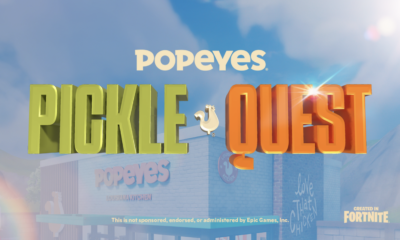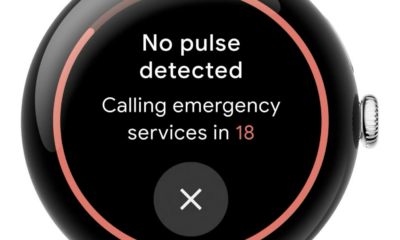-

 Celebrity News1 week ago
Celebrity News1 week agoAngelina Jolie’s 18-Year-Old Daughter Shiloh Spotted in Rare Photo With Edgy New Look
-

 Entertainment5 days ago
Entertainment5 days agoFyre Festival 2 in Trouble as Venue Disputes Controversial Organizer Billy McFarland’s Claims
-

 Celebrity News1 week ago
Celebrity News1 week agoJustin Bieber Calls Out Paparazzi In Dramatic New Video
-

 Celebrity News5 days ago
Celebrity News5 days agoJonas Brothers Tour Tension: Joe and Nick Reportedly Frustrated with Kevin’s Role
-

 Entertainment1 week ago
Entertainment1 week agoAaron Carter’s Son, 3, Makes Red Carpet Debut
-

 Celebrity News6 days ago
Celebrity News6 days agoBrad Pitt Finally ‘Free to Propose’ to Ines de Ramon After Angelina Divorce Finalized
-

 Celebrity News1 week ago
Celebrity News1 week agoKathy Griffin Reveals Shocking Health Update
-

 Celebrity News5 days ago
Celebrity News5 days agoNicolas Cage’s Ex Christina Fulton Begs Actor to Step In After Son Weston’s Violent Breakdown
-

 Celebrity News1 week ago
Celebrity News1 week agoTom Hanks’ Daughter E.A. Hanks Talks Relationship With Stepmother Rita Wilson
-

 Celebrity News4 days ago
Celebrity News4 days agoJoe Jonas Steps Into Single Dad Role While Sophie Turner Gears Up for Tomb Raider
-

 Celebrity News1 week ago
Celebrity News1 week agoRory McIlroy Shares PDA With Erica Stoll at Master Post Divorce Drama
-

 Celebrity News2 days ago
Celebrity News2 days agoKelly Ripa and Mark Consuelos’ ‘Live’ Set Disaster — Crew Member Hospitalized, Cheats Death in Horror Accident













